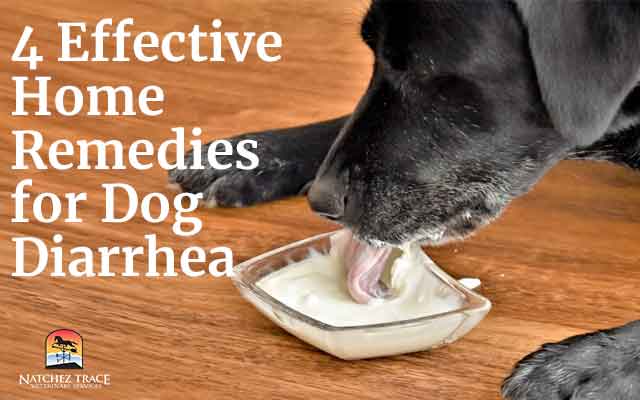To treat puppy dehydration at home, provide small amounts of water frequently throughout the day. Additionally, offer ice cubes or electrolyte solutions to help rehydrate your puppy.
Dehydration in puppies can be a serious condition that requires prompt attention. Common causes of dehydration in puppies include diarrhea, vomiting, excessive heat, or lack of access to water. It is essential to monitor your puppy closely for signs of dehydration, such as dry gums, lethargy, and sunken eyes.
Taking immediate action to address dehydration in your puppy can prevent further complications and promote a speedy recovery.
Recognizing Dehydration In Puppies
Signs of dehydration: Lethargy, dry nose, sunken eyes, excessive panting, loss of skin elasticity.
Causes of dehydration: Vomiting, diarrhea, excessive heat, lack of water intake, illness.

Credit: dailydogfoodrecipes.com
Importance Of Addressing Dehydration
Puppies are susceptible to dehydration, which can lead to serious health complications. It is crucial to address this issue promptly to ensure their well-being. Dehydration occurs when a puppy’s body does not have enough water to properly function. This can happen due to factors such as excessive heat, illness, or vomiting.
Potential Risks:
| Dangerous Effects of Dehydration on Puppies |
|---|
| 1. Lack of Energy |
| 2. Rapid Heart Rate |
| 3. Dry and Sticky Gums |
| 4. Sunken Eyes |
Benefits of Prompt Treatment:
Addressing dehydration in puppies promptly can prevent potential risks. By ensuring they receive proper hydration, you can:
- 1. Restore energy levels and vitality
- 2. Maintain a healthy heart rate
- 3. Keep gums moist and prevent oral health issues
- 4. Ensure proper eye health
Remember, if you notice any signs of dehydration in your puppy, seek immediate veterinary attention. By providing the necessary care and attention, you can prevent further complications and promote your puppy’s overall well-being.
Home Remedies For Rehydrating Puppies
For rehydrating puppies: Offer electrolyte solutions to prevent dehydration. Encourage hydration with water-rich foods.
Monitoring Your Puppy’s Recovery
Dehydration can be a serious concern for puppies, but there are steps you can take at home to help them recover. Monitoring your puppy’s recovery is crucial to ensuring they are on the right track. Signs of improvement include increased energy levels, a return to normal eating and drinking habits, and a decrease in lethargy. It’s important to closely observe your puppy for these positive changes.
However, if you notice that your puppy is not improving or if their condition worsens, it’s essential to seek veterinary care immediately. Your veterinarian is the best person to determine the appropriate treatment plan for your puppy’s hydration needs. Remember, proactive monitoring and quick action can make a big difference in your puppy’s recovery from dehydration.
Preventing Dehydration In Puppies
Ensure puppies have access to clean, fresh water at all times, especially during hot weather or after exercise. Monitor their water intake and encourage them to drink by adding a small amount of low-sodium chicken or beef broth to their water. Using a pet water fountain may also entice them to drink more.
Limit outdoor activities during peak temperatures to prevent excessive water loss. Avoid prolonged sun exposure and always provide shade. Be mindful of signs of dehydration, such as lethargy or dry, sticky gums, and act promptly if any symptoms are noted. Monitor the puppy’s urination frequency and color to ensure proper hydration.
Common Misconceptions About Puppy Dehydration
In the world of pet care, there are many misconceptions regarding puppy dehydration. Let’s address some of these myths and uncover the facts to ensure the well-being of our furry friends.
- Myth: Puppies don’t get dehydrated as easily as adult dogs.
- Fact: Puppies actually have a higher risk of becoming dehydrated due to their smaller size and higher metabolic rate.
- Myth: Providing water alone can rehydrate a dehydrated puppy.
- Fact: Electrolytes are crucial for rehydration, and giving a balanced electrolyte solution is recommended.
- Myth: Feeding a dehydrated puppy only dry food will help retain water.
- Fact: Moist food or adding water to dry food can actually help increase hydration levels.
- Myth: Dehydration can only occur in hot weather.
- Fact: Various factors, such as illness or vigorous physical activity, can contribute to dehydration regardless of the outside temperature.
- Myth: Puppy dehydration is not a serious concern.
- Fact: Dehydration can lead to severe health complications and even be life-threatening, so it should never be taken lightly.
Addressing these misconceptions can help pet owners provide the necessary care and attention to prevent and treat puppy dehydration.
Consulting A Veterinarian For Dehydration
Puppy Dehydration Home Remedy: When your puppy shows signs of dehydration, it’s crucial to consult a veterinarian for professional advice. The veterinarian will conduct diagnostic procedures to determine the extent of dehydration and provide suitable treatment options, ensuring the health and well-being of your pet. Seeking professional advice is vital for addressing the severity of dehydration and implementing effective home remedy solutions.

Credit: puppypoop.com
Conclusion And Long-term Hydration Strategies
For a puppy dehydration home remedy, implementing long-term hydration strategies and drawing a conclusion is crucial. Providing access to clean, fresh water at all times and incorporating moist foods in their diet can aid in maintaining proper hydration levels and preventing dehydration.
| Key Takeaways: |
|
Maintain consistent water availability for your puppy’s well-being. Batch water breaks to encourage regular hydration. Keep a close eye on water consumption patterns. Offer fresh water in a clean bowl every time.

Credit: www.pinterest.com
Frequently Asked Questions
How Can I Rehydrate My Puppy Fast?
To rehydrate your puppy fast, offer small amounts of water frequently throughout the day. Use a syringe if necessary. Consider Pedialyte or electrolyte solutions. If symptoms persist, consult a veterinarian immediately for proper diagnosis and treatment.
Can You Save A Dehydrated Puppy?
Yes, you can save a dehydrated puppy by providing it with fluids and seeking immediate veterinary care.
How Does A Dehydrated Puppy Act?
A dehydrated puppy may act lethargic, have sunken eyes, dry mouth, and lose skin elasticity. It may also show signs of panting, weakness, and reduced appetite. If you suspect dehydration, seek veterinary help immediately.
What Is The Fastest Way To Cure Dehydration?
The fastest way to cure dehydration is by drinking plenty of fluids, especially water. Hydrating drinks like electrolyte solutions or sports drinks can also help replenish lost fluids and minerals. Seek medical attention if symptoms worsen or if you are unable to keep fluids down.
Conclusion
Dehydration in puppies is serious. Use these home remedies to address it effectively. Your furry companion’s health depends on it. Keep them hydrated and happy with simple, natural solutions. Consistent care and attention are key to preventing dehydration in your beloved puppy.
Remember, their well-being is in your hands.

Hello, I’m Daniel Johnson. I Studied animal science at the University of Florida. I am a seasoned veterinarian deeply committed to ensuring the health and happiness of every dog. With extensive expertise in dog health, I contribute my knowledge to Dog Advisor Pro to help dog owners understand and address their pet’s health concerns. My passion is making veterinary advice accessible and understandable to all, allowing dog owners to provide the best care for their furry friends.


